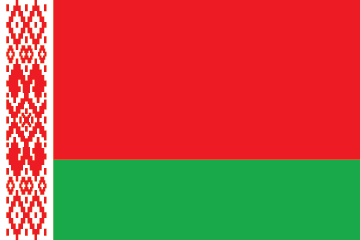
Compulsory Education Age
6–15 years old
Legal Status
Homeschooling is legal only in certain situations. While not completely prohibited by law, education provided through a method other than the schooling system is virtually non-existent. It is not very socially acceptable and is considered undesirable by school authorities. In accordance with Article 158 (1.2) of the Code for Education, the educational process in the framework of general secondary education can be organized in educational institutions, at home, or in health care organizations.
Article 1 (16) of the Code defines homeschooling as the organization of the educational process during which the curriculum of general secondary education is learned by a pupil who temporarily or permanently can’t attend educational institutions, and therefore learns at his home rather than in other formal settings of public or private school.
Further, the Code on Education specifies that the acquisition of general secondary education at home is organized for students who are temporarily or permanently unable to attend an education institution for medical reasons (Article 160(1)). The educational
process is then organized by a state educational institution located close to the home of a child or by an educational institution the child used to attend before experiencing medical complications (Article 160 (2)). The decision to homeschool in
the above-mentioned situations is made by the department of education of the local executive body after the submission of the application of the child (by his representatives) and the certificate of the medical board.
A list of medical conditions required for the application for homeschooling was established by the Decree of the Ministry of Health of Belarus in May 2011.
Thus, the State authorizes homeschooling for medical reasons. However, a closer look at the Code reveals that, although not explicitly mentioned, homeschooling is also possible on two other conditions:
- if a child is exceptionally talented, or
- if a child cannot attend school temporarily or permanently ‘for good reasons’.
In such cases, a child is entitled to study following an individual plan of studies (Article 167 (1)). The right to studying in accordance with an individual educational plan is reiterated by Article 31 (1.5) which names the right to study in accordance with an individual education plan among the pupil's principal rights. In that case, a child is registered with a school and is allowed to attend any additional classes he/she wishes. According to the Code, home education should meet the requirements of the curriculum for public schools and thus the homeschooler is required to come to school for regular tests. Homeschooling can be an option for families living temporarily abroad and allows for more traveling. Also, young athletes, poets, artists, and actors can be taught at home.
Several questions arise, however, as to the practical implementation of this right. Given the vagueness of the formulation of ‘the good reasons’ and ‘exceptionally talented child’, and that homeschooling is rather broadly categorized as a specific form of education, there are no guarantees that permission to educate a child at home will be provided in case of demand. In practice, such matters are left to the sole discretion of local educational authorities. Outside the outlined two reasons, which are not always easy to justify, a parent cannot just come to school and say that he/she is opting for homeschooling. As one of the parents said: “In practice, to justify one’s wish to follow an individual plan of studies is not always easy. It is good if the child has musical or other talent, or if the parents travel a lot. And if not? To openly claim that ‘we just want to develop our child in a different way, we want to give the child more possibilities,' is just impossible.”
Interestingly, commenting on the possibility of transferring a child from attending a school regularly to studying in accordance with the individual plan because of parents’ religious beliefs, Chairman of the House of Representatives Standing Committee on Education, Culture, Science and the Scientific and Technical Progress, Vladimir Zdanowicz noted that ‘Religious beliefs should not interfere with the integrity of the child’s education. If a school allows parents to educate their children individually because of their religious beliefs, it is a violation of the law by the school administration. This should not happen.”

